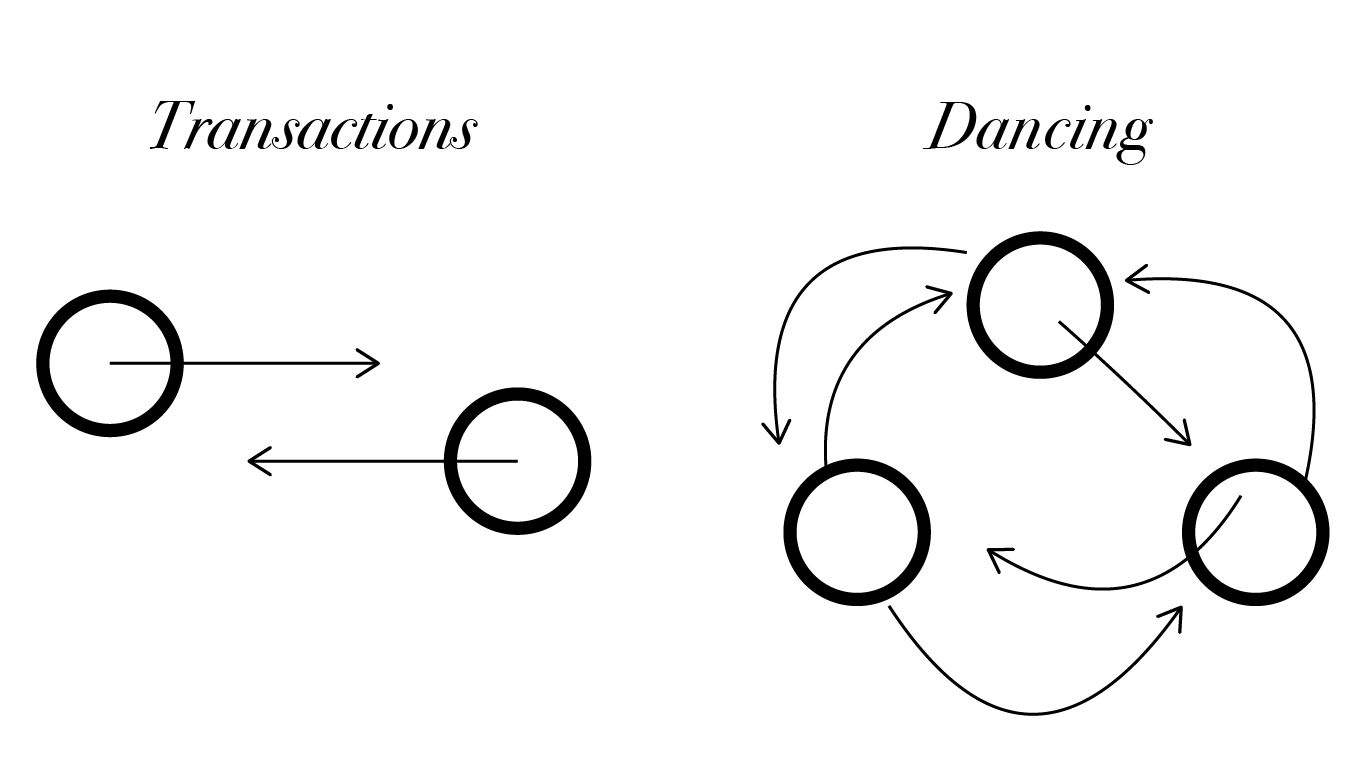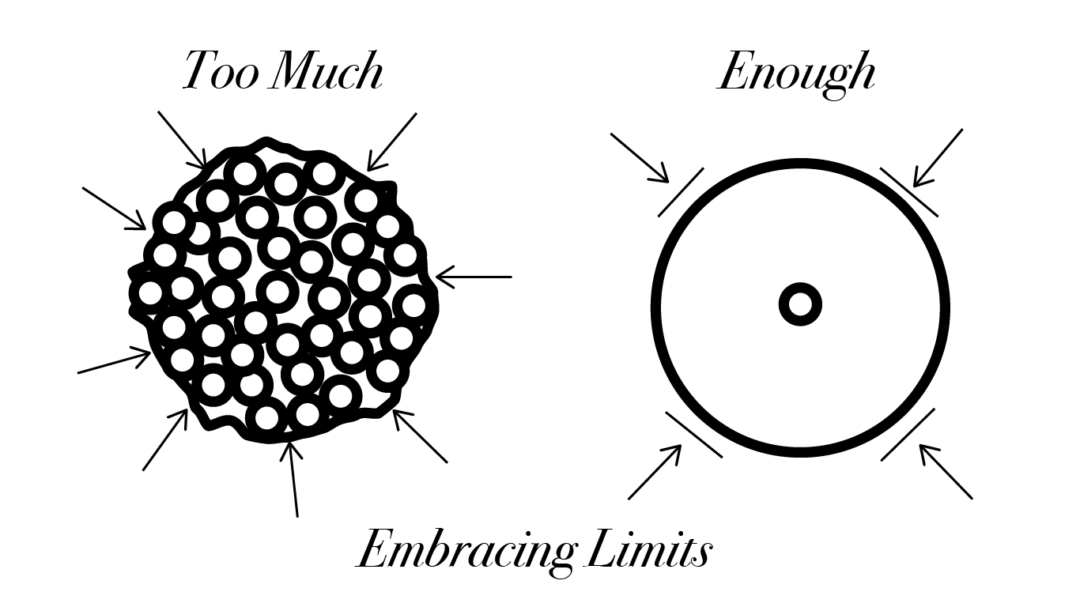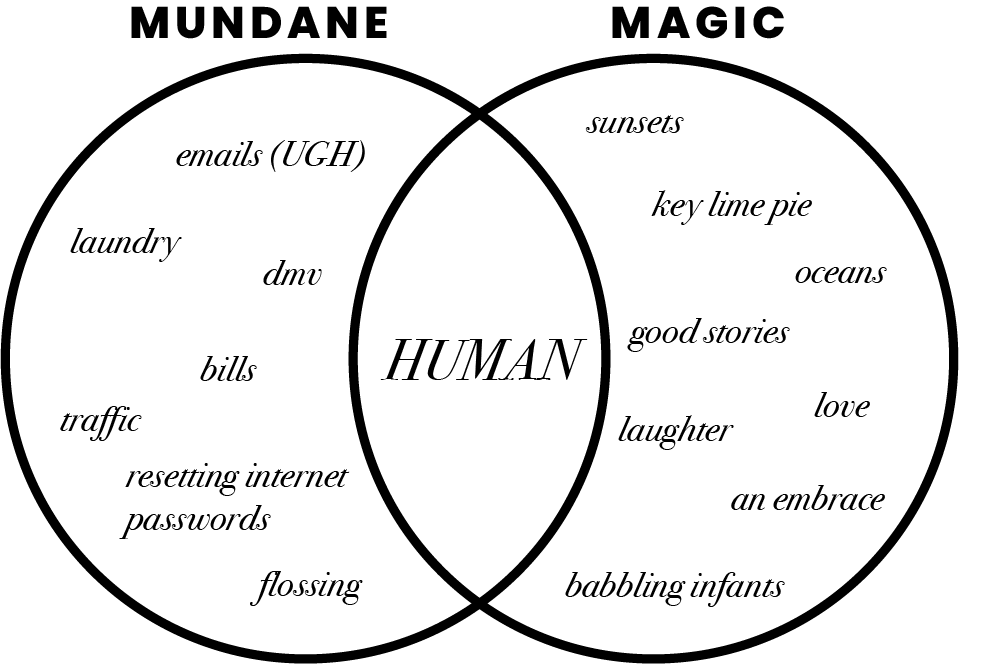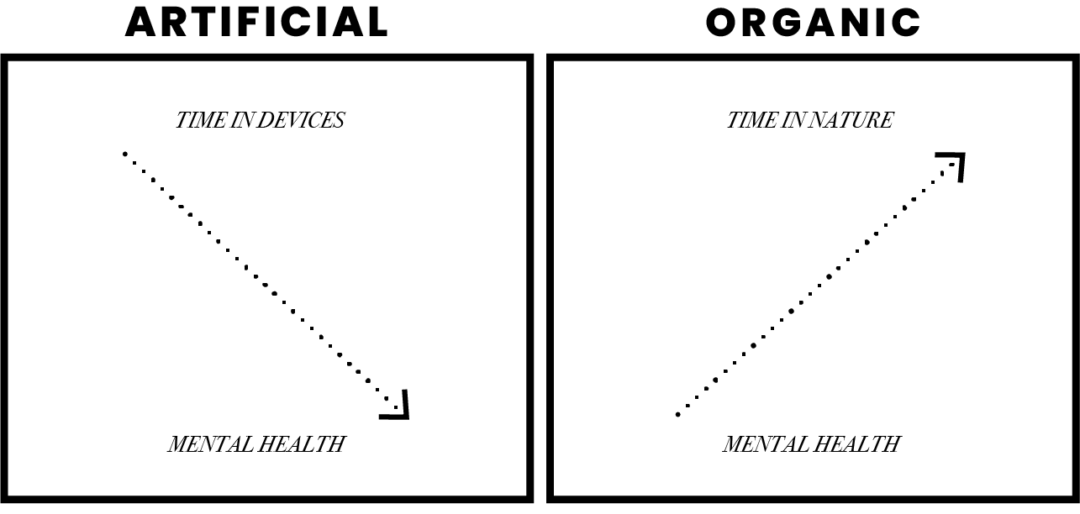Just a man and 30,000 penguins.
No one lives on Gabo Island except Tony. He’s the caretaker of this tiny island off the coast of Australia. Except for an occasional visitor, he is completely alone, no human connection. A previous caretaker, Leo, once went without human interaction for 21 days. I have extroverted friends who can’t go without talking for 21 minutes.
For some of us, this doesn’t sound that bad. The waves, silence, and solitude. But something is inherently wrong about it. We feel it in our bones. Even the job is aware of the isolation—now multiple caretakers who rotate are on rotation, so nobody is alone on the island for too long. A famous poem once named this tension—“no man is an island.”
In the 1930’s a group of researchers from Harvard began a study on happiness lasting for decades, becoming the longest longitudinal study on happiness. The study revealed one of the greatest indicators of living a healthy life was not a healthy career, loads of success, or dream vacation, but strong relationships.
“One thing continuously demonstrates its broad and enduring importance: Good relationships.”
The Good Life.
This should be great news. Long-term happiness is not dependent on being a genius, having incredible amounts of wealth, or being more successful than others. It’s based on something everyone can focus on each day.
But there is a problem…
A Robot for a Human
In the movie, “Her” a man falls in love with the AI on his devices. There is a sweetness to the story because it’s the first time he’s been able to connect with anybody on a deep level.
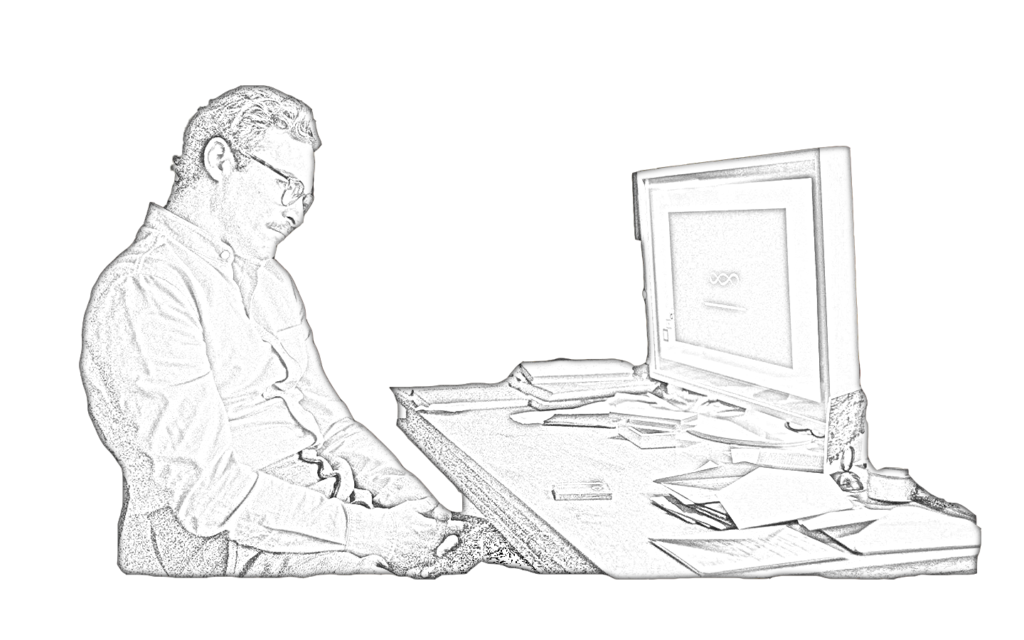
But it’s also haunting. Is this a good relationship?
I was walking around the mall last week and saw more people engaged with their phones than with other people. How many of us do this? Spend more time with a device than other humans?
How much more prevalent will this be when our devices can hold a natural conversation or learn about our personality, engaging with us in a way we prefer? Because that day is coming.
We are already in an age of unprecedented isolation and loneliness. One Harvard report found 36% of all Americans—including 61% of young adults and 51% of mothers with young children—feel “serious loneliness.”
The United Kingdom’s loneliness problem has become so prevalent, that they created the Ministry of Loneliness to handle the problem.
While it’s not technology’s fault, our devices and social media certainly add to the problem. A University of Arizona study supported this idea, finding that smartphone dependence predicted a higher rate of loneliness and depression in young adults.
When it comes to loneliness and relationships, the fear of AI is valid.
But again, this series is about hope. It’s about a belief that AI might remind us who we are and help us return to a more human way of living.
And there is nothing more human than connecting with other humans.
A Human for a Human
The Lord God said, “It is NOT GOOD for the man to be alone.
Genesis 2:18
Up to this point, God’s creation is repeatedly labeled as “good.” It is pleasing and acceptable. Now, in verse 18, we have the first instance of God saying something is NOT GOOD. What is “not good?”
For the human to be alone.
From the very beginning, we have extreme clarity about a core value of humanity—we are social creatures. We need each other. We need community. Loneliness is not good. Isolation is not good.
Modern research is catching up with this ancient reality. In 2015, researchers at UCLA discovered that social isolation triggers cellular changes resulting in chronic inflammation, which predisposes the lonely to physical conditions like heart disease, stroke, metastatic cancer, and Alzheimer’s disease. Another study published in 2015 found that the health effects of prolonged isolation are equivalent to smoking 15 cigarettes a day.
It’s hard to argue with this simple but profound truth—loneliness is NOT GOOD. The Creator noticed this and formed a companion. This companion became an example of something everyone needs—companionship.

Companionship does not mean marriage or a romantic relationship. Companionship comes through playing pickle ball, walking dogs, grabbing coffee—it is the act of doing life with at least one other human.
When we live life in isolation, we go against what God declares as good.
As we continue to progress, the question is, can AI be a companion?
The Transactional Relationship of Technology
Ok, tell me I’m not the only one who does this: sometimes when I ask Siri or Google or Alexa a question, I can’t help but respond by saying, “thank you.”
Manners flow in my Oklahoman blood. Also, I program my AI helpers to have British accents, so they sound very proper. I want to return this properness.
I know it’s a string of 1’s and 0’s responding to my query using a set of rules and programs, with zero emotions or true intelligence…
But for a moment, I forget and I don’t want to be rude. So, I respond how I respond to humans. And being even more honest, if AI does wage war and attack us later on, maybe they will spare me because I was nice??
But what’s the reality? Our relationship to technology is transactional. It’s an exchange. We put a coin in the slot and expect a return. If I say or type something in the correct way, I expect a response or answer.
And to be honest, transactional relationships can be great because they are easy. Here are some things I don’t have to worry about when technology is my companion:
- Listening—passively or actively.
- Engaging when I don’t feel like it.
- Deciphering any deeper code or meaning.
- Paying attention to non-verbal signals.
- Putting effort into interactions.
It’s easy. It’s convenient. It’s predictable. But it’s empty.
Transactions do not equal companionship.
Sometimes I Wish Humans Were Like Computers
But sometimes I want my relationships to be transactional. I want my kids to laugh at my dad jokes when I get home, and then quietly do their homework without asking, as my wife hands me a plate of fried chicken (hey, you have your dreams, I have mine.)
I want my friends to be there when I need them and agree with all my opinions (and also laugh at my jokes.) I want people at work to help me when I need help, without bugging me to help them.
We can view our world of relationships through transactions. I do this for them, so I can get that. I invest this, so I can receive these benefits.
We forget every human has divinity in them. They have spirit in them. Our relationships are not meant to be based on what they do for us or how they can serve our agenda.
But this is easier said than done. Because humans are not artificially intelligent or made in a lab. Which means relationships with humans can be messy and frustrating.
Humans are:
- Unpredictable and weird.
- Confusing
- Complex
- Mean
- Annoying
- Have no sense of humor
People are not devices you can turn on when needed and turn off when bored. Humans are not programmed to do what you want and see things the way you do.
It’s A Dance
You are in a position of total powerlessness, and your ego is fighting it. All you can do is surrender and enter into this dance of unhindered dialogue, this circle of praise, this web of communion that we call the Blessed Trinity.
Richard Rohr, “The Divine Dance”
Dancing is as old as history itself (there are cave paintings illustrating dance.) Dancing is something we know in our bones. Dancing is a human thing. If you think I’m going to make a joke about being a white dude with Southern Baptist roots and can’t dance…you are correct. It’s true. But I’m convinced if we lay down our egos and self-consciousness, we would all like dancing. Even people like me.
My 6-year-old had a “dance recital” at school last week. At one point, the kids partnered up and took turns “listening” to their dance partner. As their partner free-styled, the other would try to mimic and follow the freestyle dance. This is a powerful exercise—listening and responding to their partner.
When we dance, we all have our own unique expression, but when we dance with others, we release some of our individuality and sync up with the other person. Sometimes it’s a little awkward. It’s unpredictable.
But sometimes the movements harmonize and two individuals create one unique expression.
In the Christian tradition, one of the core thoughts is God exists in 3 persons. If you aren’t in the Christian tradition, just know it’s a confusing concept and some people will claim to know everything about it, but they are lying. Because it’s a beautiful, theological mystery.
I used to think it was this 3-part hierarchy. God was the boss and dad, always a little grumpy, hard at work. Jesus had gone off to a liberal college and developed some new hippie ideas and when he brings his friends home, he has to warn them about his dad. The Holy Spirit is the little sister usually off floating in the flowers. God and Jesus don’t really keep tabs on what’s she’s doing.
But one of the most beautiful things about the concept of the trinity is they are actually all equal. 3 individual persons, but united as one.
It’s sometimes said the Trinity is in an eternal dance.
And wouldn’t it make sense for the creator to come from relationship, and then create us in the same image—for relationship? Not relationships built on our own agendas, but relationships that look more like dancing.
Listening and responding.
Laughing and holding.
Stepping on toes and awkward.
Goofy and silly.
Intimate and gentle.
Of course, dancing requires risk. We all remember junior high when the boys and girls stayed on their own side. When you ask someone to dance, they might say “no.” When you bust out the running man, people might laugh. You might not sync up with some people. Your dance partners may change.
But, human connection is worth the effort.
Gabo Love Story
Healing is impossible in loneliness; it is the opposite of loneliness. Conviviality is healing. To be healed we must come with all the other creatures to the feast of Creation.
Wendell Berry
In 2005 on Gabo Island, Tony met a visitor named Karen. Five years later, he found her online and now she partners with Tony as a Gabo Island caretaker. He is no longer alone.
She cooks, he makes tea. They move about the island caring for the land and lighthouse. She paints. He reads.
“It is not good for Tony to be alone.”
This is at the core of what it means to be human. Partners. Comrades. Friends. Helpers.
And again, sometimes this is romantic, but it doesn’t have to be.
Renaissance of Hangs
In a recent podcast, Derek Thompson wrestles with the dilemma of modern teenagers being more sad than ever. A main culprit is the lack of human connection because of technology and social media.
He suggests the need for a “renaissance of hangs.”
Before the ubiquity of internet and technology, we simply hung out with each other more. When bored, we didn’t grab our phone; we went to a friend’s house. As adults, we bowled together. Cooked together. Fished together. Walked together. Everything was done in community or family or a tribe.
As a kid, do you remember going to a friend’s house and having ZERO agenda? What are we going to do? It doesn’t matter.
And it makes sense, right? Hanging out is the opposite of transactional. We don’t try to get something from the other person. We don’t manipulate them. We’re not trying to achieve an end result.
We are just BEING with someone else. We laugh. We listen. We share. We play. We goof off. We eat junk food. We are human BEINGS.
Maybe returning to our humanity can be as simple as having more agenda-less hangs.
I’m hopeful the rise of AI will make us long for something deeper.
I’m hopeful we will learn to turn off our screens and turn towards another human.
Someone who has spirit in them. Who sees things differently than you.
Who has needs you can provide for. A human who can laugh and cry and feel pain…like you.

